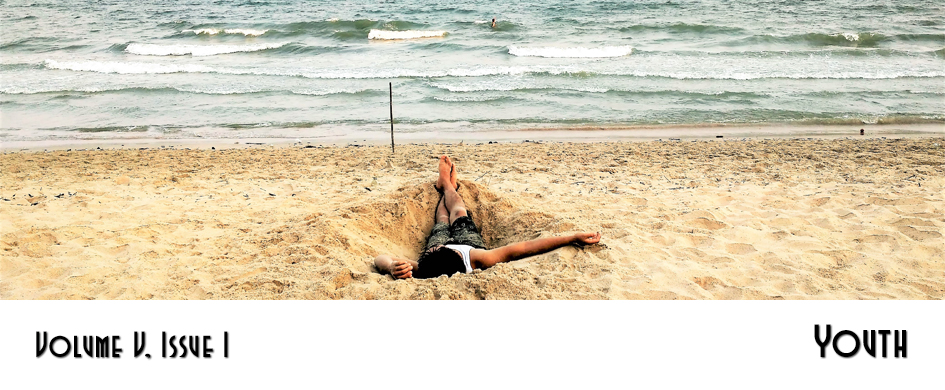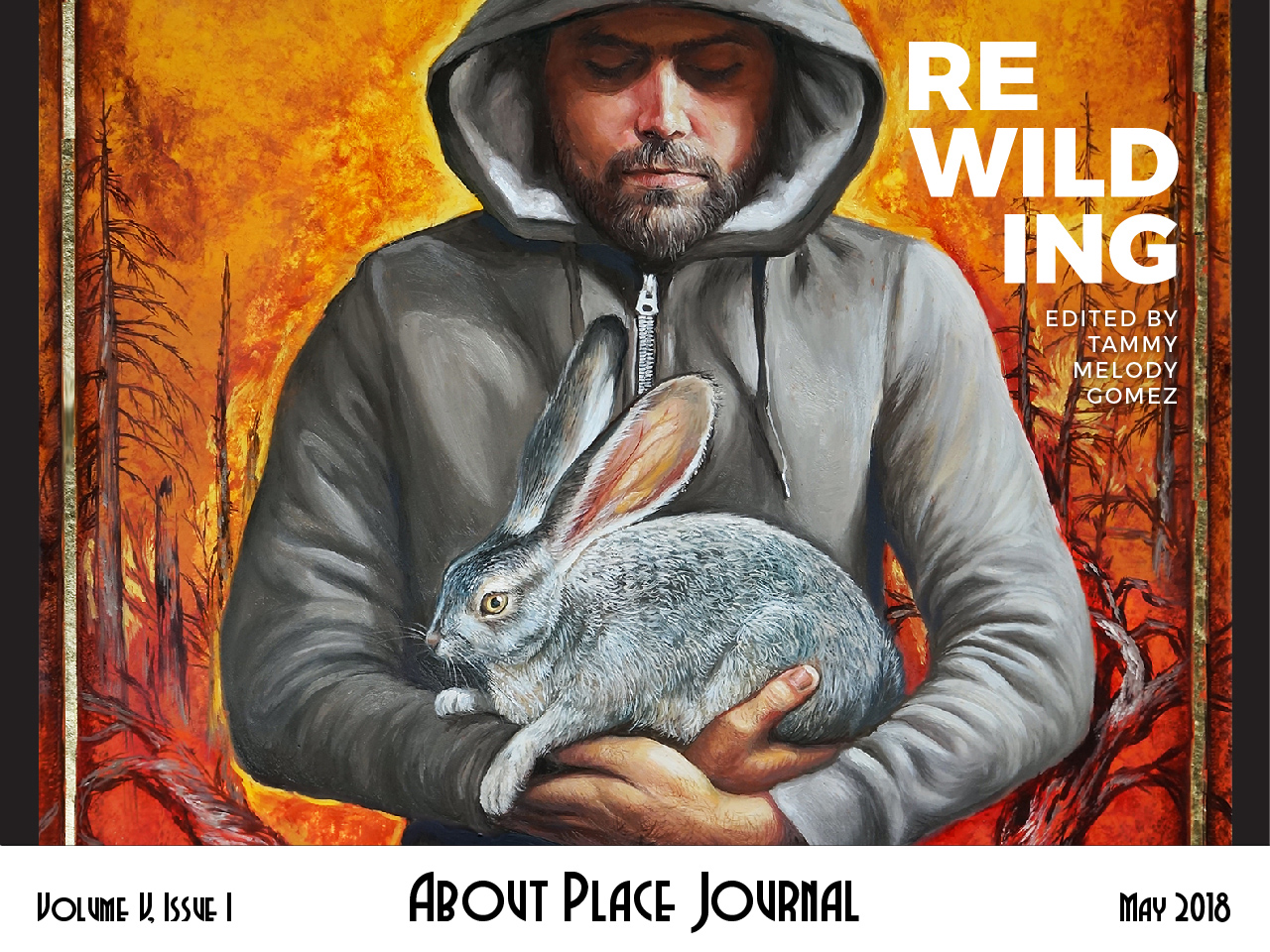In New Hampshire, boys learn their summer prayers on the riverside. They worship bareheaded and barefoot on smooth granite. Their devotion is to the water, the air, the place where sunburnt skin meets too-cold surface.
The boys that follow behind me to the Cascade have never learned these things. Their childhoods are broken and ground down. Their choices have cost them their innocence. When the world looks at them, it is through the broken kaleidoscope of failure.
They have never learned to pray.
I bring three of them to the place where I learned the prayers of a New Hampshire boy. A river, where the water makes a placid descent before the rapids, then slows and moves ever closer to the sea.
“This place sucks,” one says. He’s wearing a baseball hat with a perfectly flat rim. He’s overweight and when he swims he’ll wear jeans and a too-big t-shirt.
The second is tall and thin. “Can’t we go somewhere else?”
I laugh at them, because in June, there is no better place to swim. There is no better place to watch the pine trees in the summerlight. And I can think of nowhere I’d rather be. Cranky teenagers or not.
The three of them aren’t my kids. They’re my day job, and packing them into the car to swim could end in disaster. I’m waiting to see if they’re balk at the Cascades. Waiting to see if they fling curses like they’re a forgotten language. Waiting to see if they’ll learn to pray.
“Come on,” the third says. He’s the most broken of them, with the jagged-most edges. People’s lives bleed when they brush up against him. “It’s not like we have anything better to do.”
* * *
I grew up across the street from the Cascade, in a Bed and Breakfast with my grandparents. My earliest memory of my grandfather involved the river. I was six, maybe five, and sat on the rocky sandbar where the water was quiet and smooth. I weighted down his pockets with each perfect rock I collected. Whatever made them special, my grandfather dutifully pocketed, until there were handfuls of them to line along our porch across the street.
What stands out most in my memory is the image of my shoe, fallen in the water, and riding the gentle current–on to new adventures. I watched it, because at six, or maybe five, I was scared of the water. Then there was a splash, as my grandfather dove for it; clothes, shoes, and unsmoked cigarettes. He plucked the shoe from the water, just before it went downstream forever. He walked home with me, soaked and laughing and happy.
* * *
They won’t go in.
Big, tough, angry-at-the-world teenage boys won’t go into the water. They dare each other to dive in first. Swear to follow the leader into what they think will be ice-cold hell.
“My balls are going to freeze off,” one says. The other two agree the way all boys do: with silence, and a desperate attempt to make someone else be brave.
I have spent more summer days at the Cascade than I have in my home. They do not believe me when I tell them the water isn’t as cold as they think it is. There is nothing to make them believe that the golden water is not chipped with ice.
“You all suck,” the tall one says. He throws himself from rocks. The splash follows, drenching the other two. I know better than to stand nearby when the others give themselves to the air and the water.
I watch when they laugh at each other. I don’t let them splash, because those are not the prayers I want for them. I am also not going into the frigid water. June water in New Hampshire is still cold with ice-melt.
* * *
There was a summer when my best friend and I spent every day at the Cascade. My grandfather gave me chores and allowance and I couldn’t swim until I was done at home. We were thirteen and thought we understood the world.
We prayed that summer. Prayed until my skin was gold the color of the Pemigewasset River, and my hair was white-blond like the clouds that kept watch in the sky.
* * *
I’m thinking of that summer as they swim. I’m thinking of what friendship means and if the joking and ribbing between them in the water is friendships building. I wonder at what they’d pray for. What I prayed for when I was their age.
They are each so broken. It’s my job to teach them to put the pieces back together again, to grind down the places that are too wild, where people get hurt.
The kid who jumped into the water first, the one who is tall, stutters when he speaks. He is like a puzzle with missing pieces and he has glued the open spaces full of hate.
He catches me looking at him, his face halfway between the boy he is and the man I hope he becomes. He doesn’t say anything, just climbs from the water to jump in again.
* * *
They have become experts of the water. They slide down the Cascade like otters, like penguins on a television documentary. They laugh as the water pushes them, they smile, and call to each other. They are praying and they don’t know it. With each wet-foot step on the sun-warm stones.
The second boy likes to tell people about the drugs he does. His mouth doesn’t trip over words like tetrahydrocannabinol. When he gets angry, he curls his small hands into fists and says words that I would never have spoken to my grandfather. We are cordial to one another, a ceasefire more than a truce. We don’t talk about the times I’ve found him in his room, crying into his pillow. We don’t talk about phone calls to his mother that end badly.
Today, he’s the leader of the expedition. He finds the places where the rocks have been carved into slides and he follows the water down, safety navigating the rapids. He cheers to his friends, and they make a ragged line down the waterway.
There is no talk of drugs. There is no talk about bad choices. There is laughter from his mouth in the trees. He scrapes his back on rough rock, goes under where the water grows deep. He surfaces, still smiling.
* * *
The day the doctor told me my grandfather was going to die, I came to the Cascade. It was spring, and the snowmelt had the river riding high over the rocks. It was white and frothy and I had to jump from stone to stone to find a place in the rapids where no one could find me.
I believed, at fourteen, that the water would drown out my thoughts. I hoped that with winter dying all around, something inside me would freeze. That words I could not quite say yet–Emphysema, Chronic Obstructive Pulmonary Disease–would wash down river and never come back.
* * *
The boy who swims at the bottom of the Cascades, swims in deep water. It’s the only place among the rocks where the river turns dark and feet can’t quite touch the bottom.
He’s deep like that place. When he looks at you, it’s like looking into darkness. No teenage boy should have that hidden in his eyes. He is quieter than the others, though it was his suggestion to stay. He has found the quiet pools and the rapids. He has laughed and he’s challenged. I watch him, as I watch all of them. Because it’s my job.
He’s hurt people. Hurt people in ways that will never heal. He’s gloried in it, and when he is upset, he calls home and tries to be the child he has never been. He tells me he hates me: that I remind him of his father, that I don’t care about him. But he waits for me to pull into work every day, is the first to greet me when I walk in the door.
But he is swimming and the water is deep. Deep enough to drown. Drown out, drown in.
* * *
The sun is setting and the shadows turn the water silver. The boys are running out of steam. They’re wet all through from the Pemigewasset, they’ve ridden the Cascades a dozen times. They are sunburnt as any son of New Hampshire should be. There is a stillness in them that was not there before.
They take their last runs down the rock slides with grim determination. Their faces are set to prove that they have mastered the Cascade. I watch, pointing them toward their towels, to their shirts, and to the road home.
We walk by the house I grew up in, across the street. My grandfather died before I was eighteen. I cannot help but wonder as we climb into the car, these boys and I, what we leave behind us. I think of my grandfather. I smile too, at their new-won quiet, and think that it is another kind of prayer.


